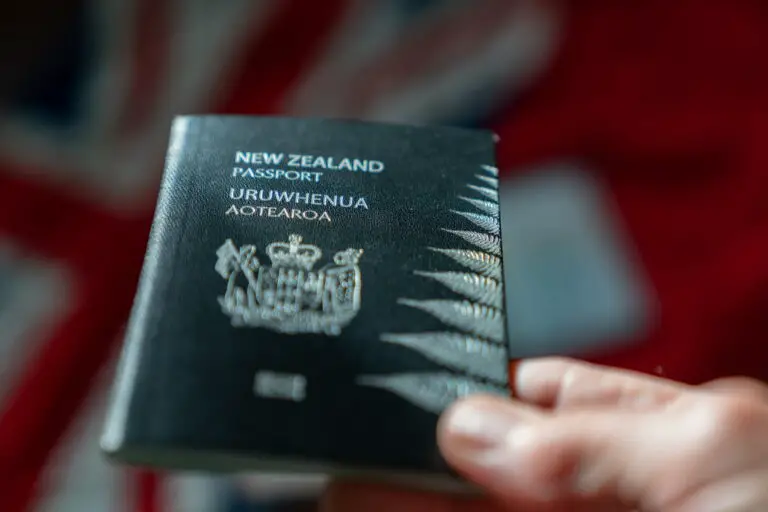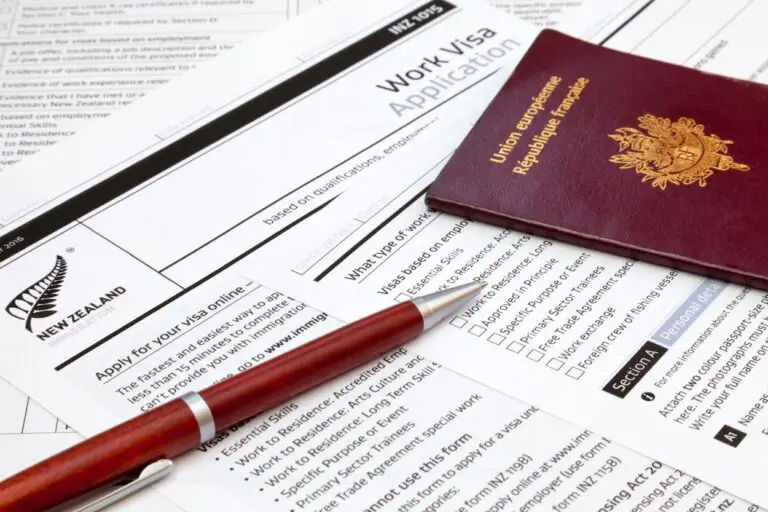Canada vs New Zealand: Best Place For Living [2024]

Weighing out all available options is critical when trying to find the best place for relocation. This can be especially overwhelming when choosing between countries with exceptional quality of life, like Canada and New Zealand. While each country offers a unique set of advantages, several key factors should be considered when deciding which is best for you.
Canada and New Zealand both offer high quality of life, great job opportunities, and a welcoming atmosphere. While Canada is known for its diverse cities, stunning landscapes, and high salaries, New Zealand is famous for its outdoor activities, clean environment, warm climate, and laid-back atmosphere.
This article compares the major factors in Canada and New Zealand you may consider when contemplating where to relocate. Read on!
Check out: Living in New Zealand vs the UK and the cost of living in New Zealand vs Canada.
Living in Canada vs New Zealand

Various factors come into play when comparing living in Canada and New Zealand. Below we reveal all the major differences between the two countries and suggest which one wins in each point.
Quality of life
According to the OECD index, New Zealand has a higher quality of life than Canada. The leading factors that indicate a country’s quality of life include life expectancy, mortality rate, unemployment rate, education system, and political stability.
The life expectancies in New Zealand and Canada vary by 1.3 years. New Zealand’s life expectancy is 83 years; 84 years for women, and 81 years for men.
Canada’s average life expectancy is 84 years; 86 years for women and 84 years for men. Hence, you will live long in both places.
Canada’s child mortality rate is higher than in New Zealand. 4.4 children in every one thousand live births in Canada die, while the rate stands at 3.4 for every one thousand live births in New Zealand.
Canada has a higher rate of unemployment than New Zealand. In Canada, 5.7% of all adults are unemployed. In New Zealand, the unemployment rate was 3,5% in 2023.
New Zealand’s education system is of slightly higher quality compared to that in New Zealand. Canada’s education system takes up only 5.2% of the total GDP.
New Zealand’s government secludes an outstanding 6.0% of the country’s GDP to spend on the education system. Both countries have universities ranked in the world’s lists, yet Canada is slightly ahead.
Canada is less politically stable than New Zealand. New Zealand’s political stability ranging from one to one hundred, stands at 90%, while Canada’s is 85%. Canada is a better option if you prefer to stay in a more peaceful environment.
Learn more about the qualify of life in New Zealand in our YT video:
Weather
New Zealand and Canada experience completely different weather due to their climatic zones.
In short, New Zealand has a significantly warmer climate, yet more rain than Canada. You will also enjoy more sunshine hours while living in New Zealand. In both countries, it never really gets hot, yet Canada can be very cold during the winter.
Winter temperatures of about minus 20°C to 35°C are pretty normal. In New Zealand, the temperature almost never goes beyond 0°C, especially on the North Island. This can, however, happen in the South Island and in particular locations. That said, for everyone loving the warm, New Zealand is the right choice.
Canada is in the Arctic polar to temperate, while New Zealand lies in the subtropic to temperate zones. New Zealand lies in the 34° 60′ S to 46° 36′ S latitudes, and Canada stands in the 68° 21′ N to 42° 7′ N.
Canada’s distance from the equator is about 4,000 to 7,600 km, while New Zealand’s is around 3,900 to 5,200 km away. This means that Canada experiences extreme weather changes compared to New Zealand.
The daytime maximum temperature in Canada is about 7,5 degrees Celcius, while New Zealand’s is around 18 degrees Celcius.
Daily low temperatures in Canada sit at -3 Celsius, while New Zealand’s are only nine degrees Celsius.
Canada’s humidity levels stand at 72%, while New Zealand’s are at an outstanding 82%.
The annual precipitation concentration in New Zealand stands at 1,208 mm, which translates to 3.3 liters daily per square meter.
Canada’s annual precipitation levels sit at 737 mm, which is equivalent to 2.01 liters per daily square meter.
Measuring rainy days as those with at least 0’1 mm per m2 fall, New Zealand receives a maximum of 127.2 days of rain annually.
February is the nicest month, with only seven days of rain, while July is the rainiest, with 8.9 rainy days. Canada gets only 97.2 rainy days. July is the rainiest month, with 13 rainy days. Nonetheless, you will see more rainy days in New Zealand than in Canada.
At the same time, these numbers vary greatly depending on the exact location where you are. So, the South Island of New Zealand gets significantly less rain than average, while Auckland and Wellington have more than 2,000 mm of rain.
Canada receives only 1,071 hours of sunshine annually. December in this country has the shortest days, with only 1.7 hours of sun daily.
Living in New Zealand allows you to enjoy about 2,081 hours of sun each year. The sunniest month in this country is January, with 7.8 hours daily.
The highest daytime temperature in Canada is about 22.4°C. This is mainly experienced during July. January is the coldest month in Canada, as it can get as cold as -7.7°C. On the other hand.
February is the warmest month in New Zealand, with an average temperature of 22.1°C. July is the coldest month in this country, with a mean temperature of 12.6°C.
Night-time temperatures in Canada can drop to -16.6°C. However, in New Zealand, it never gets below 4.7°C. Nights can get as warm as 11.4°C in Canada, while those in New Zealand can rise to 13.2°C.
In terms of hours of daylight, Canada receives 7.3 hours of daylight in December. This amount increased to 17.4 hours in June. New Zealand gets 15.1 hours of daylight in December and only 9.4 hours in June.
Cost of living

Consumer prices in Canada, including housing, are 1.4% higher than in New Zealand. Here are more insights from Numbeo (August 2023):
| Rents in Canada are 12.7% higher than in New Zealand |
| Eating out in Canada is only 0.1% lower than in New Zealand |
| Groceries prices in Canada are 2.9% lower than in New Zealand |
| Local purchasing power in Canada is 1.6% higher than in New Zealand |
Toronto and Auckland are at the top of the list of the most expensive cities in the world. Here is a breakdown of the cost of living:
| Consumer prices in Toronto are 6.3% lower than in Auckland |
| Rents in Toronto are 18.6% higher than in Auckland |
| Eating out in Toronto is 9.8% more expensive than in Auckland |
| Groceries prices in Toronto are 9.4% lower than in Auckland |
| Local Purchasing Power in Toronto is 7.1% lower than in Auckland |
Canada’s rent prices are 12.7% higher than those in New Zealand. For a one-bedroomed apartment outside the center in New Zealand, you will pay a monthly rent of NZ$1,544, while one in Canada costs NZ$1,776.
In Canada, a three-bedroom apartment in the city center has a monthly rent of NZ$3,326, while one in New Zealand goes for NZ$3,024.
However, location is the main factor that influences rents. So renting a one-bedroom flat in Toronto city center costs a shocking 46% more than in downtown Auckland.
The cost of basic utilities like garbage, cooling, heating, electricity, and water add up to NZ$221 in New Zealand. These amenities go for NZ$246 in Canada.
Read the full guide on the cost of living in New Zealand vs Canada.
Grocery prices are pretty high in New Zealand, you will pay more for vegetables and fruits. They can be crazy expensive when not in season. Here are the average prices in Auckland vs Toronto (2024):
| Restaurants | Auckland | Toronto | Difference |
|---|---|---|---|
| Meal, inexpensive restaurant | 25.00 NZ$ (21.40 C$) | 29.21 NZ$ (25.00 C$) | +16.8 % |
| Meal for 2 people, mid-range restaurant | 120.00 NZ$ (102.72 C$) | 140.19 NZ$ (120.00 C$) | +16.8 % |
| McMeal at McDonalds | 15.00 NZ$ (12.84 C$) | 15.19 NZ$ (13.00 C$) | +1.2 % |
| Domestic beer | 10.50 NZ$ (8.99 C$) | 8.18 NZ$ (7.00 C$) | -22.1 % |
| Imported beer | 11.25 NZ$ (9.63 C$) | 9.93 NZ$ (8.50 C$) | -11.7 % |
| Cappuccino (regular) | 5.53 NZ$ (4.73 C$) | 5.68 NZ$ (4.86 C$) | +2.8 % |
| Coke/Pepsi | 3.91 NZ$ (3.35 C$) | 3.10 NZ$ (2.66 C$) | -20.7 % |
| Water | 3.40 NZ$ (2.91 C$) | 2.41 NZ$ (2.06 C$) | -29.3 % |
| Groceries | Auckland | Toronto | Difference |
| Milk | 3.09 NZ$ (2.64 C$) | 3.99 NZ$ (3.42 C$) | +29.3 % |
| Loaf of white bread | 3.37 NZ$ (2.89 C$) | 4.03 NZ$ (3.45 C$) | +19.4 % |
| Rice | 3.43 NZ$ (2.94 C$) | 4.71 NZ$ (4.03 C$) | +37.1 % |
| Eggs | 7.81 NZ$ (6.69 C$) | 4.98 NZ$ (4.26 C$) | -36.3 % |
| Local cheese (1kg) | 15.23 NZ$ (13.03 C$) | 18.10 NZ$ (15.50 C$) | +18.9 % |
| Chicken fillets (1kg) | 15.33 NZ$ (13.12 C$) | 18.62 NZ$ (15.94 C$) | +21.5 % |
| Beef Round (1kg) | 23.78 NZ$ (20.35 C$) | 21.11 NZ$ (18.07 C$) | -11.2 % |
| Apples (1kg) | 4.61 NZ$ (3.95 C$) | 5.39 NZ$ (4.61 C$) | +16.8 % |
| Banana (1kg) | 3.48 NZ$ (2.98 C$) | 1.91 NZ$ (1.64 C$) | -45.0 % |
| Oranges (1kg) | 5.42 NZ$ (4.64 C$) | 5.17 NZ$ (4.43 C$) | -4.6 % |
| Tomato (1kg) | 9.50 NZ$ (8.13 C$) | 5.58 NZ$ (4.77 C$) | -41.3 % |
| Potato (1kg) | 3.50 NZ$ (2.99 C$) | 4.34 NZ$ (3.72 C$) | +24.3 % |
| Onion (1kg) | 2.87 NZ$ (2.46 C$) | 3.97 NZ$ (3.40 C$) | +38.1 % |
| Lettuce (1 head) | 4.35 NZ$ (3.72 C$) | 3.69 NZ$ (3.16 C$) | -15.1 % |
Eating out
Restaurant meal prices in Canada are 0.1% lower than in New Zealand. A meal in an inexpensive restaurant in New Zealand could cost you NZ$25.00, while one in Canada is around NZ$27.09.
A three-course meal for two at a mid-range hotel will cost you NZ$120 in New Zealand. To have this amount of food at a similar restaurant in Canada is about NZ$10 cheaper.
Canada’s groceries and food prices are 2.9% lower than New Zealand’s.
Visas and residence permits
New Zealand offers various visa categories from work, study, visit, and live to invest. However, processing times and fees are significantly higher than in Canada. Applicants often wait up to one year for their visa.
New Zealand’s immigration system is similar to Canadian where you have to meet a certain number of points in order to qualify. Getting approved without a job offer is almost impossible.
Hence, to apply for a temporary New Zealand work visa, you must first have an employment offer from a New Zealand employer. You should also have relevant work experience and qualifications for that job. Meeting character and health requirements are also mandatory.
There are several criteria one can use to get a Canadian visa. To choose one that perfectly fits your specifications, it’s advisable to survey the various visa programs available. These include:
- Canadian Experience Class
- Start-up visa Program
- Federal Skilled Trades Class
- Federal Skilled Workers’ Program
- Investor visa Program
- Provincial Nominee Program
Canadian visa fees range between $230 and $1,365, depending on the type of visa and the person making the application.
Getting a temporary visa in Canada has similar requirements to one in New Zealand. You must satisfy the officer that you’ll be leaving the country immediately after your stay and show that you have enough money to sustain during your stay.
You should be law-abiding and not a security risk to Canada. Being able to produce all the documents the officer may ask for during the application process is also pretty crucial and necessary.
To become a Canadian citizen, you must live in the country for at least three years as a permanent resident. Canadian PR is pretty uncomplicated and flexible; all you have to do is meet all the requirements to be eligible.
The application for Canadian citizenship requires you to do a citizenship test, prove your language skills, and fill out your tax returns. Although some situations may need more requirements, it never gets complicated in this country.
To be eligible for New Zealand citizenship, you must have stayed in the country for at least five years as a permanent resident. During this period, you should have also traveled out of the country for only a short period yearly.
Additionally, you must prove that you understand and can speak the English language and must have no criminal record both inside and outside the country.
As a result, an immigrant will get a passport in Canada quicker than in New Zealand. If citizenship is your goal, Canada is the best option at the moment.
Jobs
Canada has more job opportunities, considering their excellent economy, which ranks tenth worldwide. This country also has better options thanks to its large market size and richness of natural resources. However, in terms of career opportunities, New Zealand has better choices.
Popular jobs in Canada cover a wide range of professions, from cooks and chefs, nurses, carpenters, retail and wholesale managers, preschool teachers and tutors, welders, maintenance staff, and drivers to agriculture workers.
In New Zealand, you must have the right experience and skills to get a job easily. This country constantly has job opportunities in the engineering, construction, medicine, and IT sectors. You could also get jobs that require general skills occasionally.
Keep in mind that the population of New Zealand is significantly lower than in Canada. Hence, the job pool is smaller.
Generally, you must fall into a skilled shortage list in order to get a job and work visa for New Zealand. That said, qualified workers have better chances of getting a job and residency in Canada.
Salaries

In March 2023, the average hourly wage across all occupations in Canada was C$33.12, according to Statistics Canada. That’s C$5,280 monthly and C$63,360 (NZ$75,948) annually.
In New Zealand, the national median salary was about NZ$58,000 in 2022. However, salaries vary greatly from one profession to another. Below are different professionals’ salary comparisons in both countries.
As you can see, even from the average national salary, wages are higher in Canada for almost all jobs apart from IT. That said, this information is subjective as salaries vary from city to city and job to job.
100 C$ = 123 NZ$ in August 2023.
| Job sector | NZ average salary in NZ$ | Canada’s average salary in C$ |
| Accounting | $65,000 | $54,947 |
| Architecture | $75,000 | $49,445 |
| Banking, finance, and insurance | $65,000 | $59,215 |
| Education | $60,000 | $59,511 |
| Construction | $60,000 | $55,022 |
| Engineering | $75,000 | $84,293 |
| Healthcare | $55,000 | $100,129 |
| Hospitality and tourism | $50,000 | $54,201 |
| Information technology | $105,000 | $72,236 |
Read our guide on salaries in New Zealand.
Healthcare
New Zealand has better healthcare than Canada. Canada’s healthcare quality is ranked fourteenth worldwide, while New Zealand takes fourth place.
The healthcare cost in Canada is pretty high compared to New Zealand. Canada spends about 10.8 % of their total GDP on healthcare. In New Zealand, no more than 9.7% of the country’s GDP goes to healthcare.
That said, both countries have state-funded healthcare, meaning you don’t have to pay for medical services out of pocket. The majority of procedures are covered by public health insurance, which is paid by taxes.
If you are fancy of additional cover and shorter waiting times, sign up for Cigna Global – the largest medical insurance provider in the world.
People
Canada is pretty populous than New Zealand. New Zealand is about 268,021 square kilometers (103,483 square miles) and has approximately 4.5 million people. On the other hand, Canada has 35.6 million people spread over its 9,984,670 square kilometers (3,855,102 square miles).
New Zealand has a more diverse population than Canada. You can meet people from various cultures, including Pacific Islanders, Asians, Indians, Latinos, Europeans, and North Americans. New Zealand is the best option for you if you want a community in that you’ll easily fit in.
You will hardly stand out in this country, as it’s full of people with varying ethnicities, religions, beliefs, and races.
That said, Canada is also rich in immigrants from all over the world, yet, it’s dominated by Europeans and Indians.
Best cities to live
Arguably, Toronto is one of the best cities to live in Canada. This city has the best outdoor spaces, the most favorable GDP, countless attractions, and the best weather. It’s also the most popular place regarding job opportunities and university options.
Burlington is also a good option for living in Canada. This city has one of the highest quality of life. It has about 580 hectares of parkland. The low unemployment, rent, and high-income rates are other reasons to live here.
Aukland and Wellington are some of the most popular and best cities to live in New Zealand. Auckland has the best natural setting, most jobs in the country, plenty of free time activities, and a wide range of restaurants. If you enjoy being social while still having some outdoor options, this is the best city for you.
Wellington is extremely livable thanks to its comfortable size, excellent connectivity, infrastructure, and friendly people. It also has a nice and compact CBD, meaning it’s pretty easy to get whatever you want as an expert. Living here is also affordable compared to the other cities.
Besides these popular places, some other top cities to live in New Zealand are Tauranga, Christchurch, Queenstown, Napier, and Dunedin.
In Canada, you can also check out places like Vancouver, Montreal, Calgary, Edmonton, and Victoria.
Because Canada has a large population, you can choose from a wider range of cities. In New Zealand, only Auckland has over one million people, all other cities are considered pretty small.


![Salaries in New Zealand vs the UK: Where You Get Paid More? [2024]](https://simplenewzealand.com/wp-content/uploads/2022/11/Depositphotos_508131346_L-768x512.jpg)




![Why Are People Leaving New Zealand? [2024]](https://simplenewzealand.com/wp-content/uploads/2023/03/romain-v-ndfQe4ZR_qg-unsplash-1-768x513.jpg)